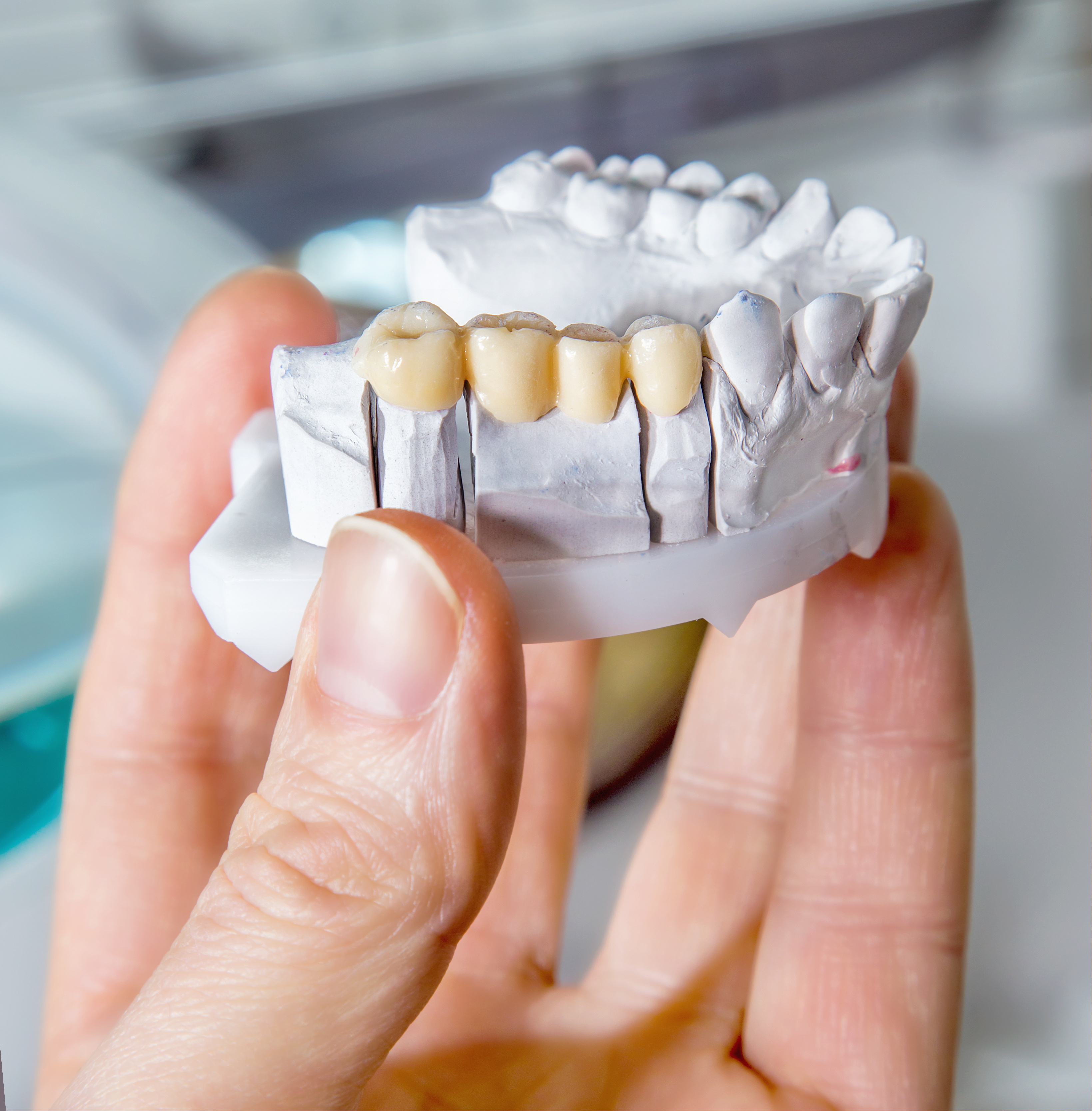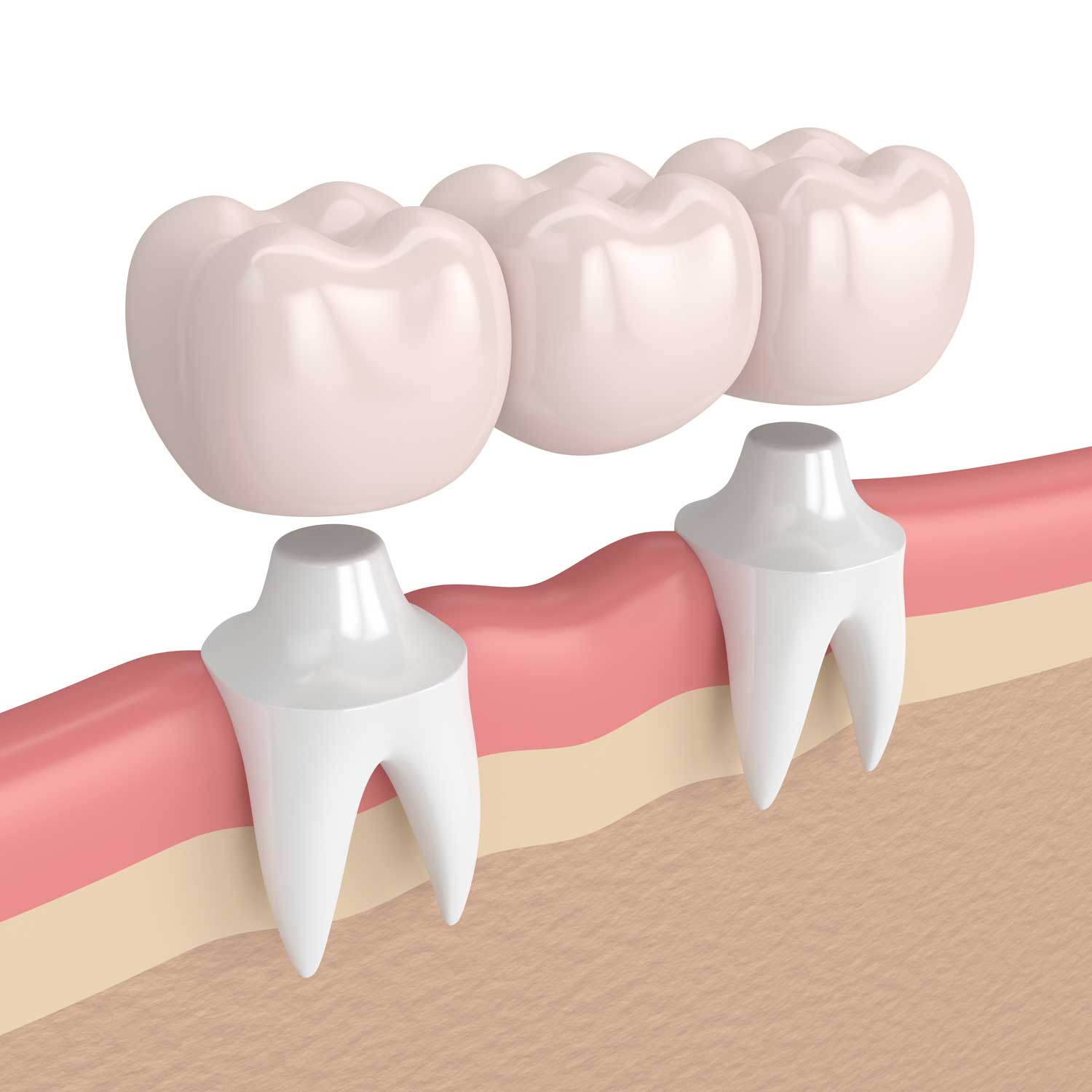When it comes to restoring a smile marred by missing teeth, dental bridges emerge as a trusted solution, seamlessly bridging the gap and restoring both aesthetics and function. In this comprehensive guide, we explore everything you need to know about dental bridges, from their types and benefits to the process of getting one and maintaining optimal oral health.
Understanding Dental Bridges
Dental bridges are prosthetic devices used to replace one or more missing teeth by bridging the gap between adjacent teeth. They consist of one or more artificial teeth, known as pontics, which are anchored in place by dental crowns or abutments attached to adjacent natural teeth or dental implants. Dental bridges are custom-made to match the color, shape, and size of the surrounding natural teeth, ensuring a seamless and natural-looking restoration.
Types of Dental Bridges
 There are several types of dental bridges available, each suited to different dental needs and preferences. Traditional bridges, the most common type, involve anchoring the pontic or pontics to adjacent natural teeth using dental crowns. Cantilever bridges are used when there are adjacent teeth on only one side of the gap, while Maryland bridges use a metal or porcelain framework bonded to the back of adjacent teeth. Implant-supported bridges, meanwhile, are anchored in place by dental implants surgically placed in the jawbone, offering a stable and long-lasting solution for multiple missing teeth.
There are several types of dental bridges available, each suited to different dental needs and preferences. Traditional bridges, the most common type, involve anchoring the pontic or pontics to adjacent natural teeth using dental crowns. Cantilever bridges are used when there are adjacent teeth on only one side of the gap, while Maryland bridges use a metal or porcelain framework bonded to the back of adjacent teeth. Implant-supported bridges, meanwhile, are anchored in place by dental implants surgically placed in the jawbone, offering a stable and long-lasting solution for multiple missing teeth.
Benefits of Dental Bridges
The benefits of dental bridges extend far beyond restoring aesthetics alone. By filling in gaps left by missing teeth, dental bridges help maintain proper alignment of surrounding teeth, prevent shifting and tilting, and restore the ability to chew and speak with ease. Additionally, dental bridges can improve facial aesthetics, support facial muscles, and boost self-confidence, enabling individuals to smile, eat, and socialize with renewed comfort and vitality.
The Process of Getting Dental Bridges
The process of getting dental bridges typically involves several appointments with a qualified dentist or prosthodontist. During the initial consultation, the dentist will evaluate the patient’s oral health, discuss treatment options, and develop a personalized treatment plan. The teeth adjacent to the gap will be prepared by removing a small amount of enamel to accommodate the dental crowns. Impressions of the teeth will then be taken to fabricate the custom bridge, which will be placed and adjusted during subsequent appointments.
Maintaining Optimal Oral Health with Dental Bridges
Proper care and maintenance are essential to ensure the longevity and effectiveness of dental bridges. Patients are advised to practice good oral hygiene habits, including brushing twice a day, flossing daily, and using antimicrobial mouthwash to remove plaque and bacteria from the bridge and surrounding teeth. Regular dental check-ups and professional cleanings are also crucial for monitoring the health of the bridge and addressing any issues promptly.
In conclusion, dental bridges offer a reliable and effective solution for restoring a smile affected by missing teeth, providing both functional and aesthetic benefits. Whether replacing a single tooth or multiple teeth, dental bridges offer a versatile option that can be tailored to meet each individual’s unique needs and preferences. By understanding the types, benefits, process, and maintenance of dental bridges, individuals can make informed decisions about their oral health and embark on the journey to a confident and healthy smile.

 There are several types of dental bridges available, each suited to different dental needs and preferences. Traditional bridges, the most common type, involve anchoring the pontic or pontics to adjacent natural teeth using dental crowns. Cantilever bridges are used when there are adjacent teeth on only one side of the gap, while Maryland bridges use a metal or porcelain framework bonded to the back of adjacent teeth. Implant-supported bridges, meanwhile, are anchored in place by dental implants surgically placed in the jawbone, offering a stable and long-lasting solution for multiple missing teeth.
There are several types of dental bridges available, each suited to different dental needs and preferences. Traditional bridges, the most common type, involve anchoring the pontic or pontics to adjacent natural teeth using dental crowns. Cantilever bridges are used when there are adjacent teeth on only one side of the gap, while Maryland bridges use a metal or porcelain framework bonded to the back of adjacent teeth. Implant-supported bridges, meanwhile, are anchored in place by dental implants surgically placed in the jawbone, offering a stable and long-lasting solution for multiple missing teeth. Comprehensive Approach to Care: Dr. Bitchatchi takes a comprehensive approach to dental care, considering not only the immediate needs of his patients but also their long-term oral health goals. When recommending dental bridges, he assesses factors such as oral hygiene, bite alignment, and overall oral health to ensure the most appropriate and effective treatment plan tailored to each patient’s unique needs.
Comprehensive Approach to Care: Dr. Bitchatchi takes a comprehensive approach to dental care, considering not only the immediate needs of his patients but also their long-term oral health goals. When recommending dental bridges, he assesses factors such as oral hygiene, bite alignment, and overall oral health to ensure the most appropriate and effective treatment plan tailored to each patient’s unique needs.
